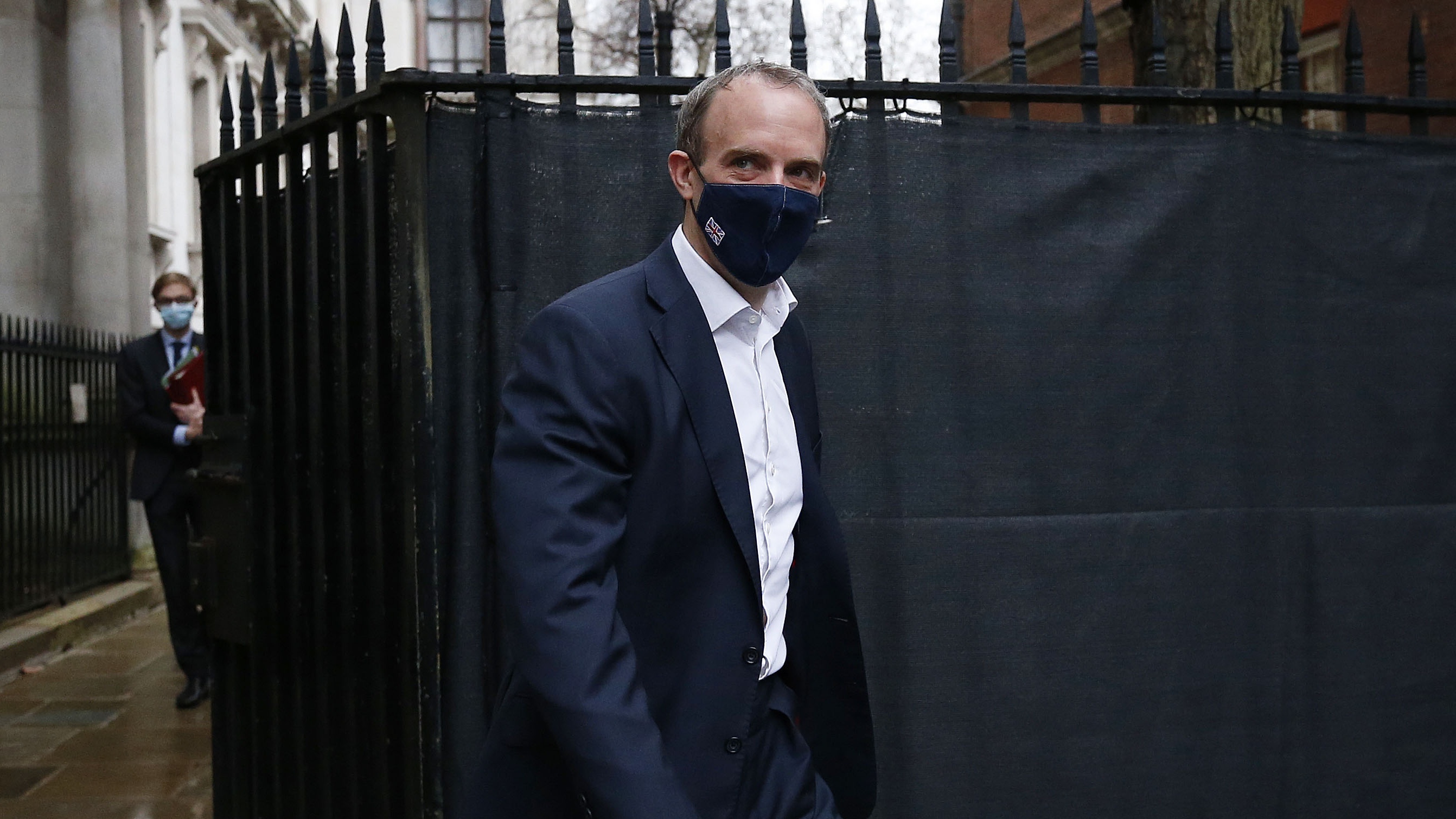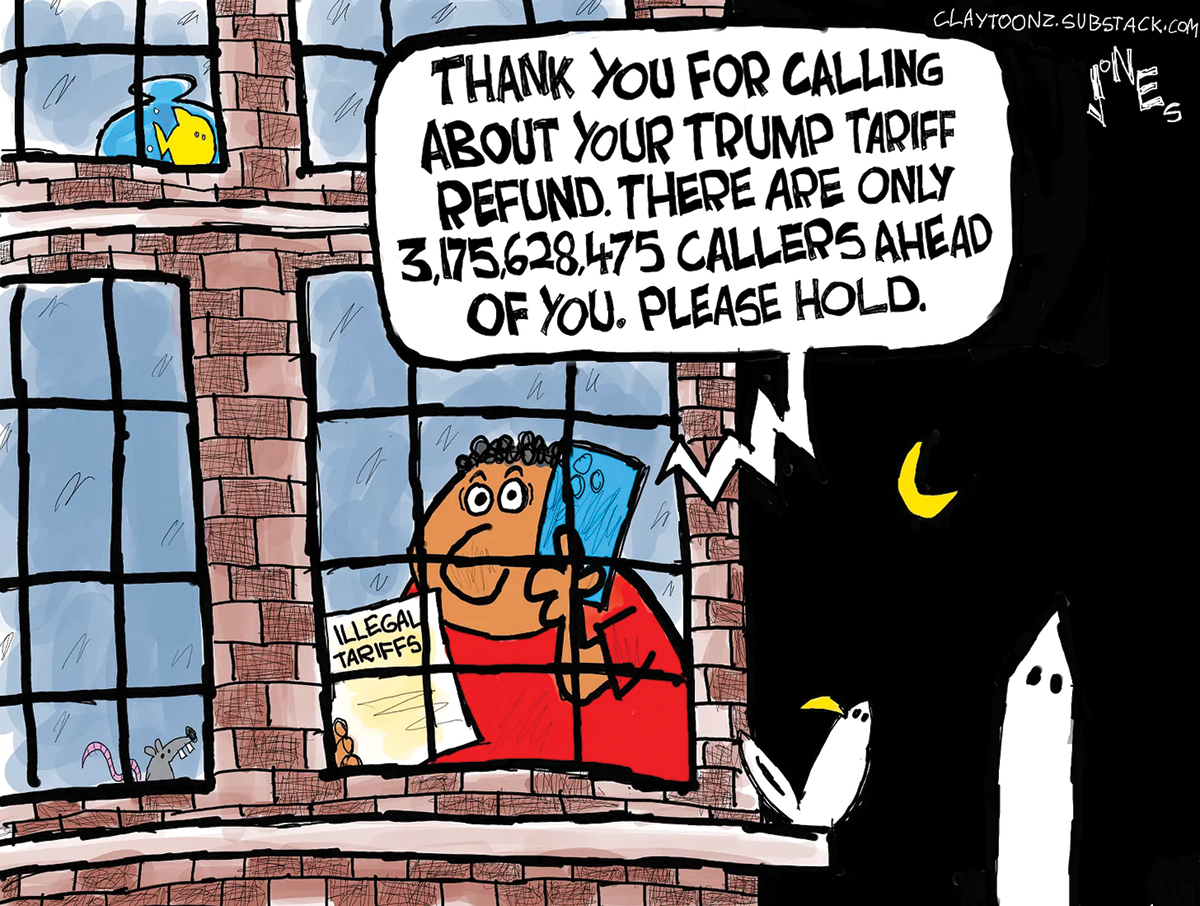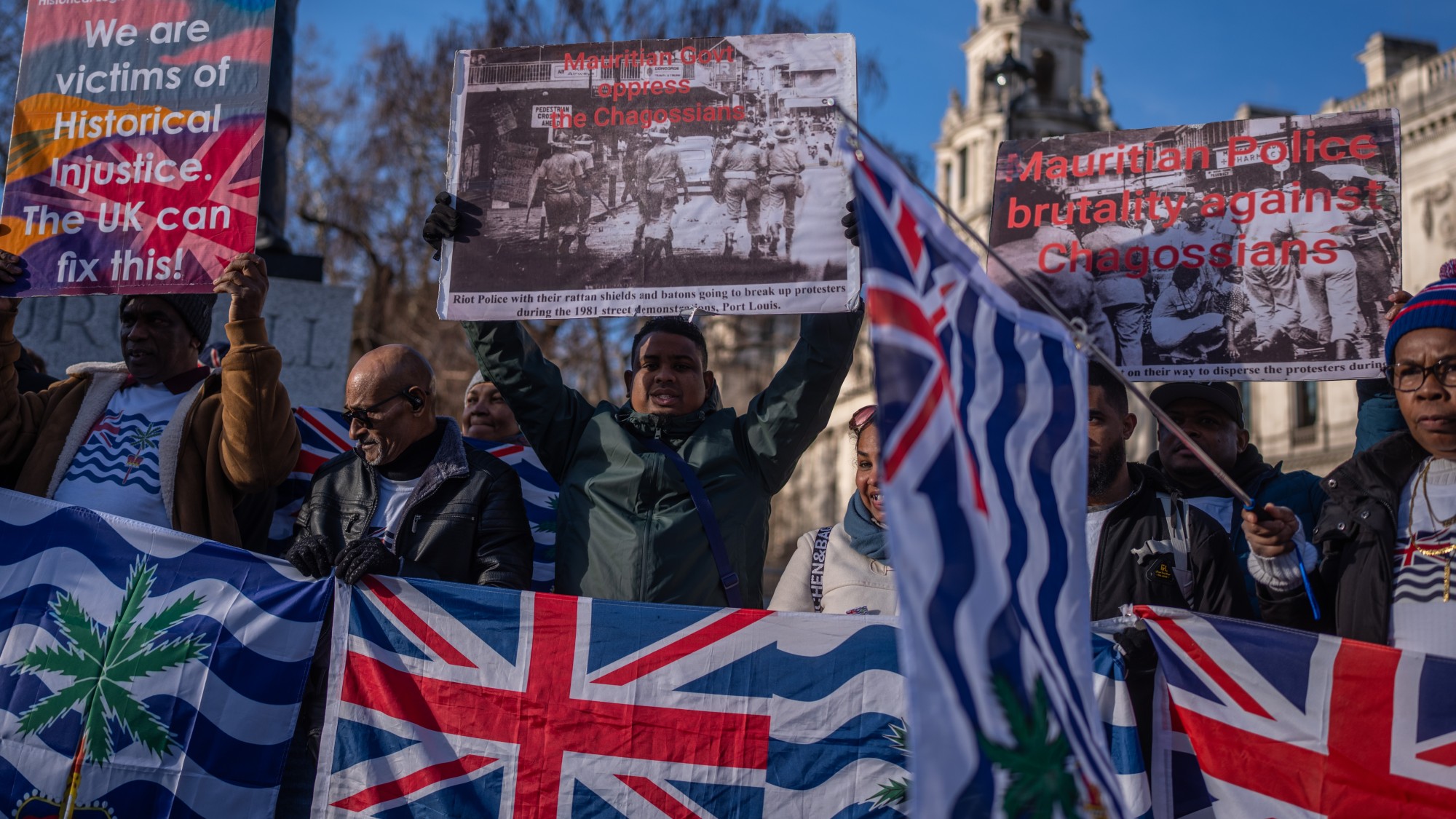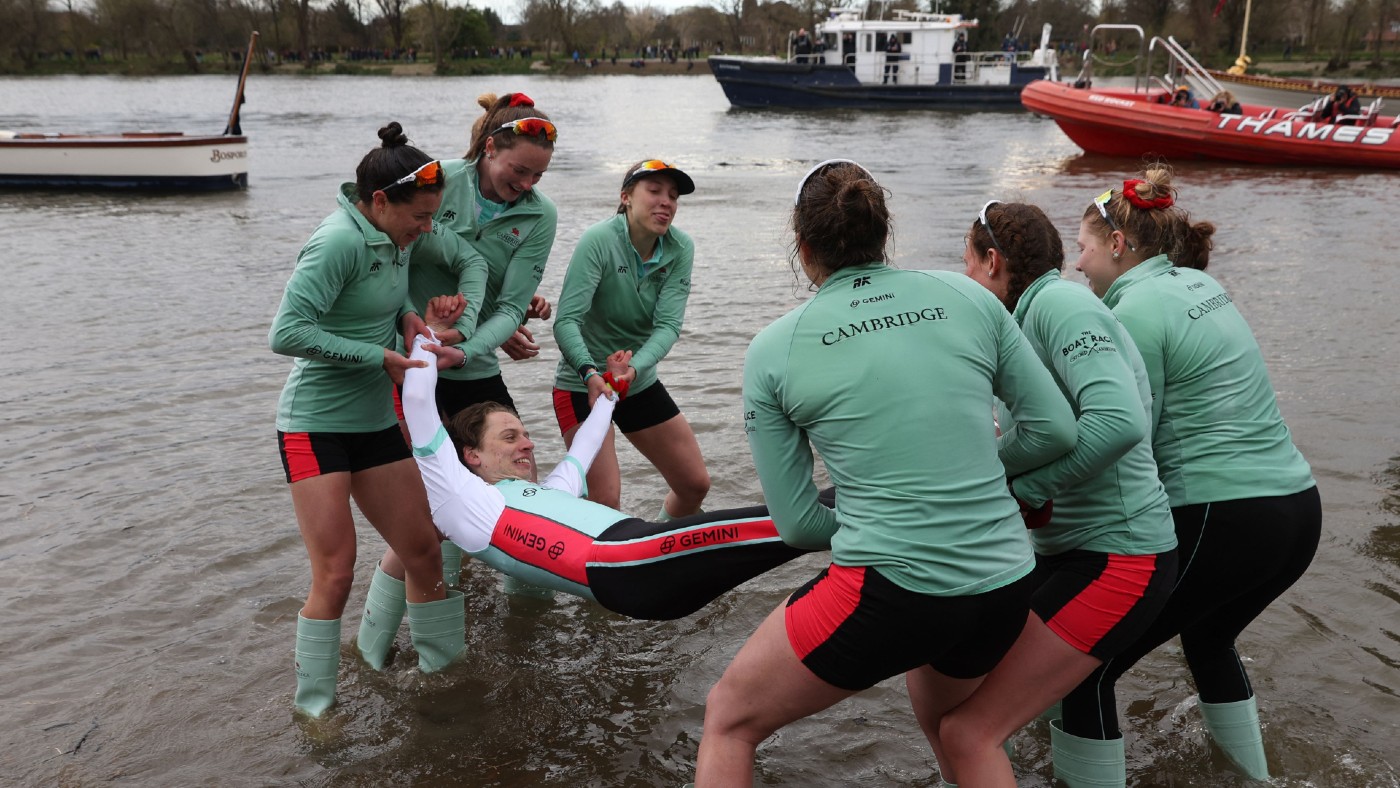UK plans to expel spies from hostile states amid Russia-Czech explosion row
Proposed foreign agent registration scheme will crack down on Russian and Chinese activities

A free daily email with the biggest news stories of the day – and the best features from TheWeek.com
You are now subscribed
Your newsletter sign-up was successful
Foreign spies covertly operating in the UK face prosecution and deportation under a proposed new law to protect the country from “hostile” states.
The Times reports that Boris Johnson hopes to use the Queen’s Speech on 11 May to formally announce plans to make it a criminal offence not to declare work in the UK on behalf of a foreign government.
Individuals working on behalf of foreign governments will be required to register in the UK as part of the “foreign agent registration scheme”, which “follows the consideration of similar concepts by allies such as Australia and the US”, reports The Guardian.
The Week
Escape your echo chamber. Get the facts behind the news, plus analysis from multiple perspectives.

Sign up for The Week's Free Newsletters
From our morning news briefing to a weekly Good News Newsletter, get the best of The Week delivered directly to your inbox.
From our morning news briefing to a weekly Good News Newsletter, get the best of The Week delivered directly to your inbox.
How are the UK laws likely to change?
British intelligence agencies have “called strongly” for a foreign agent register, reports The Times, warning that under present UK laws “foreign spies are able, in effect, to act with impunity unless they are caught acquiring official secrets”.
The government also has plans to update the Official Secrets Act, which has been described as “archaic” by ministers. They want to extend its reach to be used against people who mount cyber-attacks on Britain from overseas. At present, the act applies only to British citizens who are abroad in regards to cyber-attacks.
The terminology used in the act could also be changed. Parts of the act date back to 1911 and many of the terms used are outdated or no longer fit for purpose.
A free daily email with the biggest news stories of the day – and the best features from TheWeek.com
The act currently says it is illegal to steal “any sketch, plan, model or note which is calculated to be or might be or is intended to be directly or indirectly useful to an enemy”. The government is considering using the terms “document, information or other thing” and referring to “foreign powers” to cover more activity, says The Times.
The maximum sentence for breaches of the act, which currently stands at two years, could also be raised.
What countries will they target?
The Times reports that Johnson is “determined” to introduce to new measures “amid mounting concern over the activities of Russia and China”.
The proposed new bill is understood to be a “follow through” on the government’s response to last year’s intelligence and security committee’s report into allegations that there had been Russian interference in British politics.
In a move that looks set to strain relations between Russia and the UK further, the foreign secretary, Dominic Raab, announced that the UK government “stands in full support” with the Czech government as it seeks to find two Russian agents it says were involved in a huge ammunition explosion in the town of Vrbetice in 2014.
This weekend, the Russian ambassador to the UK, Andrey Kelin, told the BBC’s The Andrew Marr Show that he had not seen Raab for more than a year, in another sign of frosty diplomatic ties between the two countries.
What’s going on with the Czech Republic and Russia?
The Czech Republic announced on Saturday that it is expelling 18 Russian diplomats it has identified as spies in a case related to the Vrbetice explosion in 2014.
The Czech prime minister, Andrej Babis, has said the move is based on “unequivocal evidence” provided by the Czech intelligence and security services that Russian agents were involved in the incident which killed “two innocent fathers”.
At the same time, the Czech authorities published two photos of foreign citizens who visited the Czech Republic in 2014, using the same aliases as the men believed to be involved in the Salisbury Novichok attacks in 2018. The Salisbury suspects, whose Russian passports identified them as Alexander Petrov, 41, and Ruslan Boshirov, 43, are also thought to be linked to the Vrbetice explosion.
Raab said the Czech government had “exposed the lengths that the Russian intelligence services will go to in their attempts to conduct dangerous and malign operations in Europe”, The Guardian reports.
“This shows a pattern of behaviour by Moscow, following the novichok attack in Salisbury,” said Raab. “We are as determined and committed as ever to bring those responsible for the attack in Salisbury to justice, and commend the actions of the Czech authorities to do the same.”
Sorcha Bradley is a writer at The Week and a regular on “The Week Unwrapped” podcast. She worked at The Week magazine for a year and a half before taking up her current role with the digital team, where she mostly covers UK current affairs and politics. Before joining The Week, Sorcha worked at slow-news start-up Tortoise Media. She has also written for Sky News, The Sunday Times, the London Evening Standard and Grazia magazine, among other publications. She has a master’s in newspaper journalism from City, University of London, where she specialised in political journalism.
-
 Political cartoons for February 23
Political cartoons for February 23Cartoons Monday’s political cartoons include tariff refunds, Epstein Island visits, and more
-
 Can Keir Starmer save the Chagos deal?
Can Keir Starmer save the Chagos deal?Today's Big Question Opponents confident they can scupper controversial agreement as PM faces a race against time to get it over the line
-
 China and the rise of the humanoid robots
China and the rise of the humanoid robotsThe Explainer The country’s ‘bustling’ robotics industry is dominating the global market, though experts are split on how concerned we should be
-
 ‘Bazball’: England cricket’s glorious new look
‘Bazball’: England cricket’s glorious new lookIn the Spotlight A staggering turnaround has taken place under Brendon McCullum and Ben Stokes
-
 England’s epic win: Test cricket that was ‘quite simply, out of this world’
England’s epic win: Test cricket that was ‘quite simply, out of this world’In the Spotlight Victory over New Zealand was one of the most ‘glorious and scintillating’ in England’s history
-
 Carlos Alcaraz: teenager takes his seat at tennis’s ‘top table’
Carlos Alcaraz: teenager takes his seat at tennis’s ‘top table’In the Spotlight Spaniard overcame the biggest names to win the Madrid Open
-
 Emma Hayes’s Chelsea: a trophy-winning machine
Emma Hayes’s Chelsea: a trophy-winning machineIn the Spotlight It’s the third Women’s Super League title in a row for the Blues
-
 Katie Taylor vs. Amanda Serrano: the ‘greatest’ women’s boxing fight in history
Katie Taylor vs. Amanda Serrano: the ‘greatest’ women’s boxing fight in historyIn the Spotlight The world’s top two female boxers faced off for the first time and produced an ‘unforgettable’ show
-
 Tyson Fury: will he retire from boxing or become the undisputed ‘Lord of the Ring’?
Tyson Fury: will he retire from boxing or become the undisputed ‘Lord of the Ring’?In the Spotlight Pundits look at what the Gypsy King will do next after his masterclass against Dillian Whyte
-
 Protests and swearing: controversy at the Boat Race
Protests and swearing: controversy at the Boat RaceIn the Spotlight There were two emphatic victories on the Thames – one by each university
-
 Hibernian FC: how Scottish football charity rescued 50 Ukrainian orphans
Hibernian FC: how Scottish football charity rescued 50 Ukrainian orphansIn the Spotlight Children arrive in UK today after evacuation organised by fans’ group